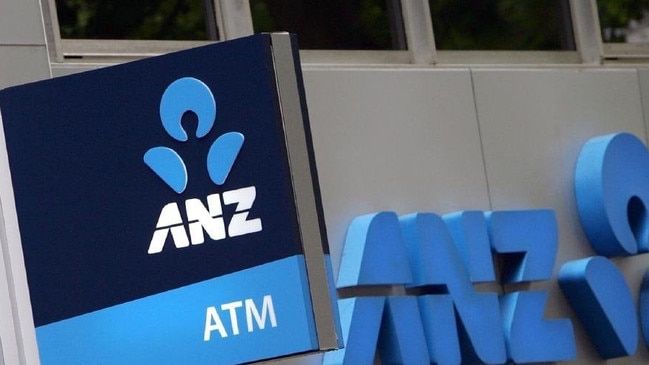ANZ starts to make good on its promised transition to a low-carbon economy

Chief executive Shayne Elliott said earlier this month at ANZ’s third annual environmental, social and corporate governance briefing that the bank had started discussions in 2018 with 100 of its highest-emitting customers, encouraging them to establish or strengthen low-carbon transition plans by 2021.
The customers were in the energy, transport, buildings, food, beverage and agriculture industries, and ANZ had already engaged with 60 of them about their public commitments to a net-zero economy.
ANZ hasn’t been prescriptive because its customers are at varying stages of maturity and operate in different sectors. It has been focusing on climate risk governance, policies, targets and disclosures.
Elliott warned there would be “massive concerns about the viability” of any businesses that were dismissive of the climate challenge.
“We’d move to exit that customer, and the reason is it’s a red flag about good, old-fashioned risk management,” he said.
Similar commentary by others has often turned out to be empty rhetoric, although Elliott was clear-eyed and determined.
As is the banking industry’s custom, he declined to comment about specific customers.
However, as this column has revealed, ANZ was part of Whitehaven Coal’s refinancing in 2017 but wasn’t part of the pure-play coal company’s latest $1bn package announced earlier this year.
National Australia Bank and Westpac took a different position.
If you thought Whitehaven was an aberration, think again.
In December 2018, when Oil Search renegotiated $US300m ($423m) in bilateral revolving credit facilities with three major banks, including Commonwealth, ANZ took the opportunity to exit.
Similar action was taken with the Ioana gas plant, with ANZ a non-participant in an April 2018 refinancing deal after lending about $160m to the purchaser of the facility, a QIC-led consortium, in 2015.
In 2015, the bank was also part of a $US4.5bn revolving credit facility for Halliburton but exited in the subsequent March 2019 refinancing, also taking its leave in the April 2020 refinancing of Trafigura-owned Puma Energy after previously lending $US17.5m.
Similarly, the bank didn’t participate in a March 2020 refinancing of Trafigura after co-arranging $US2.05bn of revolving credit facilities a year before.
And finally, in December 2019, ANZ didn’t recommit to a $US3bn syndicated revolving credit facility for the Brazilian iron ore producer Vale after participating in 2015. There are multiple considerations in play when banks choose whether to participate in a large corporate lending deal, or the extent of any contribution.
Further, Elliott said at the ESG briefing that there was no intention “to throw (customers) under the bus or just walk away from them”.
While no customer had indicated in the current round of engagement that they were not taking the issue seriously or said they didn’t “get it”, it was “absolutely” the bank’s intention to think twice about sticking to some of its carbon-heavy customers.
More broadly, ANZ’s intent is clear.
First, the engagement process with 100 high-emitting customers will be used to help establish a baseline for how companies are responding to climate risk.
Second, ANZ has stated its intention to fund and facilitate up to $50bn of new investment in environmentally sustainable solutions by 2025 to help customers lower their carbon emissions through increased energy efficiency, low-emissions transport, green buildings, reforestation, renewable energy and battery storage, emerging technologies and climate change adaptation.
But overriding that, the bank will unveil a package of new and updated carbon policy measures and targets at next month’s annual result.
BoQ outlook dims
The market didn’t like Bank of Queensland’s profit downgrade, and for good reason.
The $175m in pre-tax loan impairments unveiled on Tuesday means BoQ is much more conservatively provisioned than before — a good thing ahead of next year’s reckoning.
However, it took the downgrade for the market to recognise that BoQ needed to make some serious adjustments to its outlook; hence the stock’s 7.2 per cent slide to $5.89.
The increased provision was the result of updated economic forecasts since the first-half result in April for the bank’s base-case scenario.
Using the latest Reserve Bank data, BoQ forecast unemployment would increase to 8.5 per cent in 2021, housing prices would fall by a further 5 per cent after a 6 per cent reduction in 2020, and the duration of the downturn would lengthen.
The probabilities for the downside and severe-case scenarios were also increased.
Under the base-case scenario, regarded as a 75 per cent likelihood, the economy will shrink by 6 per cent in 2020 before bouncing back by 5 per cent in 2021 and 4 per cent in the following year.
Evans & Partners analyst Matthew Wilson noted that impairment charges in the second half would leap 425 per cent to $147m, or 62 basis points of gross loans.
While this was 20 per cent lower than his forecast, Wilson transferred the excess into the 2021 financial year, saying there was no evidence to suggest the credit cycle would be better than about 100 basis points of gross loans for a regional bank.
As to dividends, chief executive George Frazis was predictably opaque, saying the bank had consulted with APRA and the outcome would be announced at the October 14 annual result.
Wilson warned investors to adjust their expectations to zero.
gluyasr@theaustralian.com.au
Twitter: @Gluyasr






ANZ has dropped out of half a dozen lending relationships with large fossil fuel-based companies over the past two years, as the bank starts to make good on its promised transition to a low-carbon economy.